True Visions
Meet Nick McGrath, an Australian photographer based in Bangkok for the last decade, who - when he's not on assignment - seeks out the changing faces of his Asian home
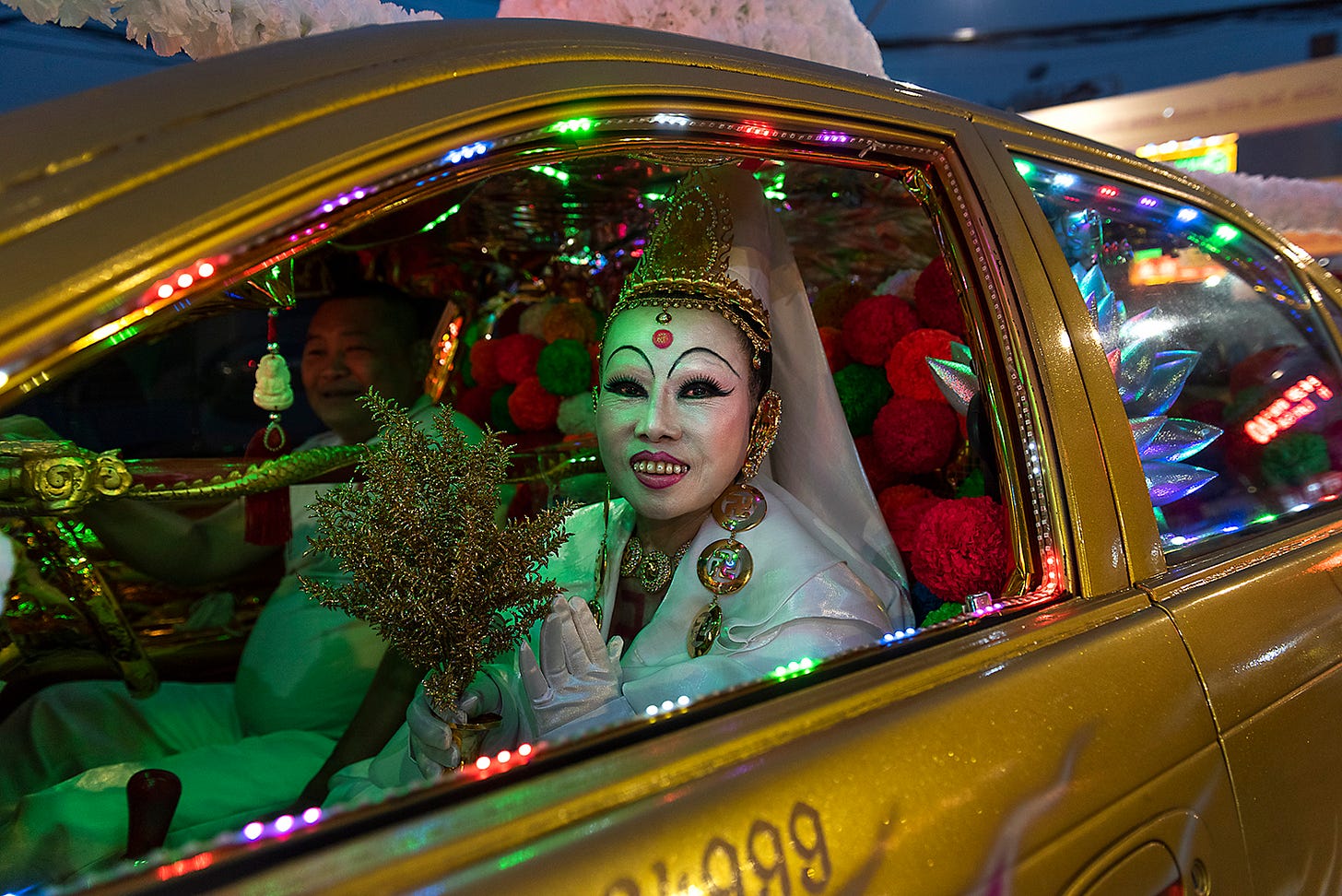
Nick McGrath is an Australian photographer who has called Bangkok home for more years than he probably cares to remember. I first met Nick on assignment for Virgin Australia's Voyeur inflight magazine several years ago, when I was writing a story on how a new slew of creative expats were influencing the changing face of the capital. Our paths crossed again recently when a colleague went on his great photography tour of Bangkok's Old Town area, and I thought it was about time I interviewed him.
Hi Nick! It's been a while - what have you been up to in the seven years since we met?
Hi Simon, Great to talk with you again! It’s been a whirlwind seven years, it’s hard to keep up with all the changes, especially after the previous two years. Prior to Covid, I was working as a destination developer for a US travel company covering all of Southeast Asia but unfortunately it fell victim to the economic tsunami after global travel ceased. Right now, I’m currently teaching privately at Bangkok Photography Workshops on a regular basis.
On the media side, I have been working with clients such as the United Nations on managing visual production for various projects. I’ve also been a media consultant to the UN working specifically on visual communications, ethics, strategies and fieldwork preparation. I designed and was the lead facilitator of a two day multimedia workshop for 40 Thai journalists working in the broadcast television industry. This was super challenging but hugely rewarding work and finally, I just recently finished a six month project for a media intelligence company writing as an insight analyst on global macro finance for Credit Suisse.
So as you can see, working independently is a full time hustle and I try to maximise and match my talents whenever I can. On the home front, I’m a proud father to a bright and handsome eight year old boy who is becoming a talented little actor who also displays a natural talent for photography.

You live in the Old Town area of Bangkok, how has that changed since you moved in?
It has changed a lot. I’ll start on a slightly positive note, there is definitely an improved trend developing with regard to the architectural history, memory and story of existing old buildings, which means a more sensitive approach is being made to some of the redevelopment taking place rather than the wholesale removal of the old facades and interiors. We can’t stop change, but the last thing Chinatown needs is the destruction of its character.
Global gentrification is a commodity, a byproduct of consumption trends, like building a bar that you could find in Melbourne, Berlin or New York, it is cool but it’s all the same thing. The homogeneous nature of global gentrification means local story, culture and the unique differences that bring people to the area in the first place disappear and so does the community.
Some businesses are too narrow in their business model and serve mostly the tourist and middle to high income Thai and local expat market. One challenge is rental prices are going through the roof leading to restrictions on how much margin business can operate on, which means you cannot have a business serving anything at real local prices anymore and marginalising local population even more.
I even had a conversation today about this subject with a local woman who grew up in Chinatown but left the area due to the changes occurring. She agreed with me that the original Chinese-Thai families are disappearing through a combination of age, trade, commerce and industry change, over tourism, increasing food prices, exorbitant rent increases, and lastly, younger generations have no interest anymore in the area.
Covid has definitely increased the pace of change and it's hard to reconcile with. This may also be a reaction to the wholesale buyout of large areas within Chinatown from local corporations eyeing larger development plans such as Chakkrawat district. The original community was evicted about 6 years ago, destroying the original shophouses and replacing them with the exact same buildings but with cheaper construction.
The redevelopment finished prior to Covid but there are still no tenants in the majority of the buildings. It's an example of ineffective planning and inefficient waste of resources overall and there are several more of these large redevelopments planned.
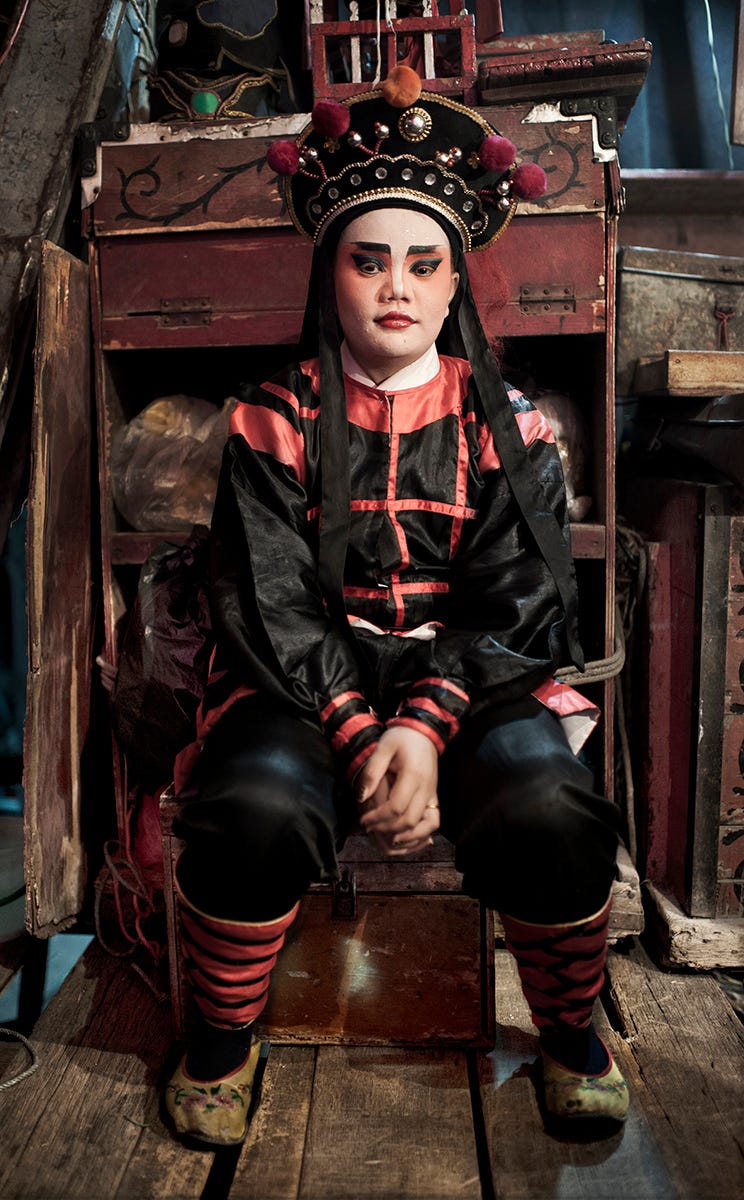
There's now a subway going right through the area - how has that impacted local life?
Prior to the extension, the subway used to end at Hua Lamphong Station, so people would originally walk to Chinatown from there, but now that the line has extended beyond Chinatown, it's insanely busier. I think there is a massive challenge ahead when it comes to handling the amount of tourists in the area.
Combining this with the shifting economic demographic changes I mentioned earlier, I see great pressures ahead. Last night a tourist was struck by a car while walking on Pleang Narm Road, a little side street of Yaowarat. It's insanely overcrowded! Not long ago you could pleasantly walk along the main road but today I rarely go there as it's a constant battle dealing with all the traffic, competing vendors and tourists.
Besides your own neighbourhood, what other areas do you like in Bangkok, and why?
Since I am so familiar with the city, I find that I don’t go to many other areas unless I've got friends in town. The best fun for me is when I can be a tourist in my own city, such as when my foodie friends are in town, I like to show them interesting local food stalls, or places like the Benjakitti Forest Park that recently opened up and connects quite well with some other parks in the city and provides some great walking tracks.
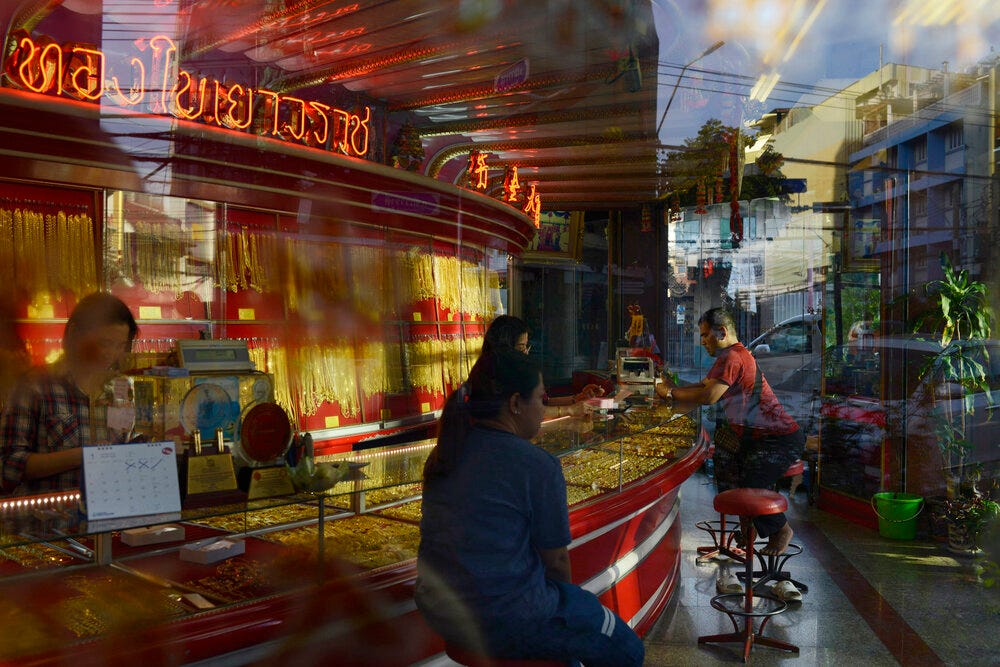
Let's go back a bit - you're from outside of Melbourne. What was life like, growing up?
I grew up in a small suburb near Geelong, about an hour's drive from Melbourne and lived close to the beach. I had a great childhood and was always an adventurer. I loved getting on my bike and riding for hours exploring the area. I’m so glad I had my childhood without mobile phones unlike the kids today.
Did you travel much with your family? When was your first ever international holiday?
Yes we travelled often. I travelled around Australia with my family when I was 11 years old which really changed my perspective on a lot of things that I knew at the time. My first overseas trip was a surfing trip in Fiji around 1987. That was very memorable as my friend and I were one of the first people to surf a remote island thanks to an Aussie expat who we met who lived and surfed there regularly. I also did a lot of remote hardcore surfing explorations in Indonesia in the early ‘90s.
What led you to getting into photography? And when did it become a career choice?
I think it was about the same time I discovered surfing. I remember going on a trip up country with my parents around 10 -11 years old and I saw a Surfing World magazine on the stand. I still remember the cover photo of a beautiful iridescent emerald wave, I remember pouring over that magazine for a long time, dreaming and wondering about adventure and what the future could hold. I didn't realise it at the time, but I think that photo inspired the photography career that began about 25 years later.
At what stage did work take you overseas, and do you recall those photography trips?
Before coming to Thailand, I was working for most of the big name newspapers in Melbourne and Sydney. After a year of working full time, I was burnt out and needed to rediscover my own way of seeing, so I came to Bangkok in 2011 for a photography workshop. It was about 6 months later whilst working in Chiang Mai as an educator for Documentary Arts Asia, I was offered a job as a photo editor for Asia Life magazine.
Did you live and work in any other countries before deciding to move to Thailand?
I’ve worked in most of the Southeast Asian countries, as well as Nepal, India, Turkey and Europe. I haven't actually lived in other countries before but since I have such an extensive history of travel, moving to Thailand wasn’t that difficult for me at the time, it seemed such a natural move and it was where most of my opportunities arrived.
Tell me about your photography work in Thailand - what kind of shoots do you do?
When I worked for Asia Life magazine I shot everything from hotels, food, portraits, fashion, product, industry and local business. Typical imagery that you would see in any lifestyle magazine. When I worked for Getty Images, I focused mainly on social issues, the political protest and coup from 2014-2015. I saw some decent street shoot-outs, chaos, human and civil destruction. For my own work, I’m more interested in underground sub-culture and quirky street images from around Chinatown.
What have been the most weird and wonderful assignments you have done, and why?
Probably the most weird assignment was covering a street shootout in Bangkok at Laksi intersection for Getty Images during the 2014 political disturbance. I remember a truck with loudspeakers blasting out Buddhist chants whilst gunshots were ringing over my head. Such a bizarre experience.
How would you define being a good photographer?
First and foremost, you have to recognise you're a human being having a human experience in this life. The definition of a good photographer for me is someone who is connected to the present moment who is observing a reality in front of them.
The skill of a good photographer as opposed to someone who owns a camera and takes photos is the lessons learnt through years of trial and error, honing those experiences and observing the nuances of human behaviour. Combining these experiences with a developed visual literacy through the act of photographing is how you develop both your heart and eye.
To know these moments takes years of failure and repeatedly questioning and refining the photographic experience that results in the images you are capturing.
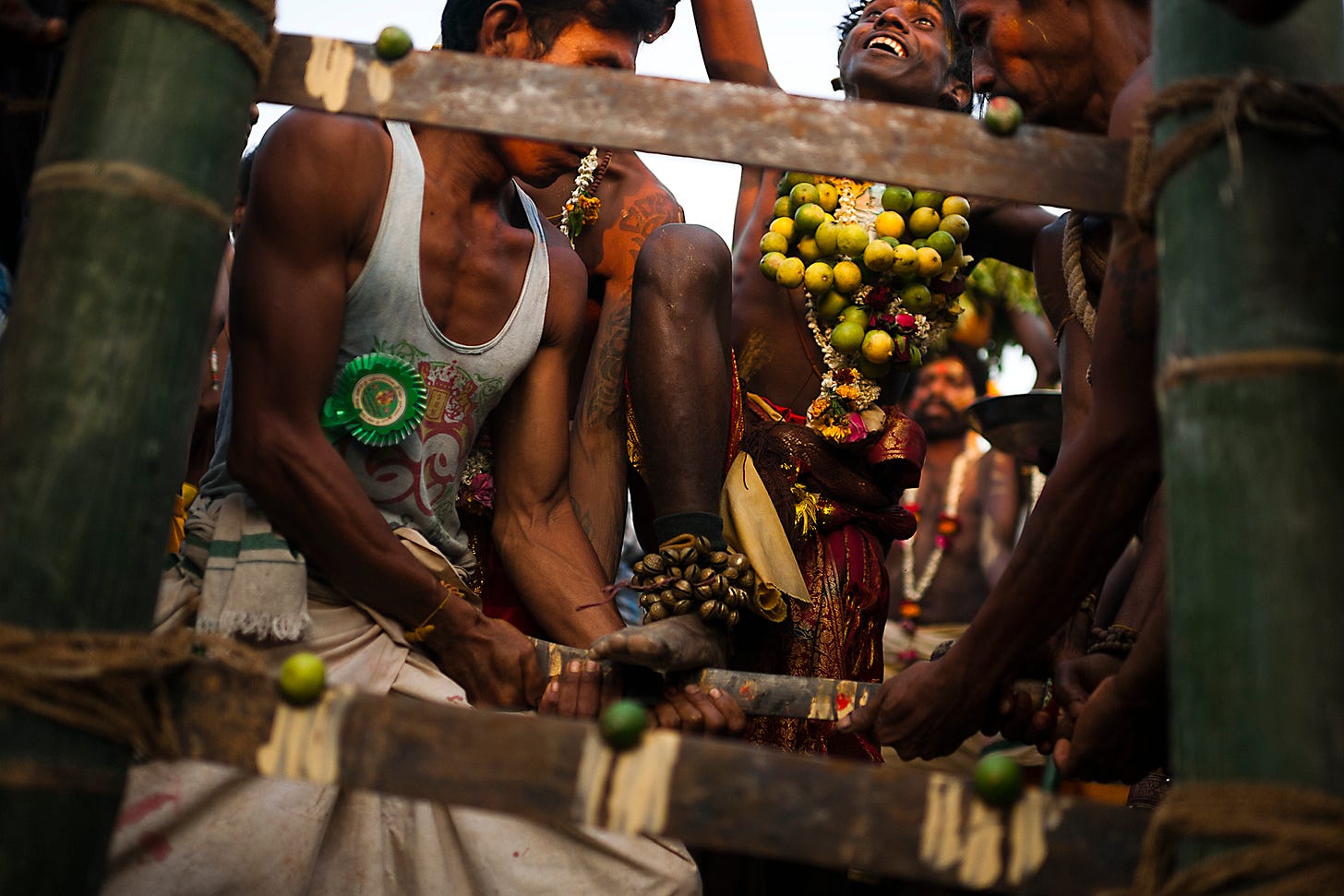
If you hadn't become a photog, what job do you think you would have ended up doing?
I’ve had an interesting life's journey, I’ve done many things in life and I was on my way to becoming a barrister as I loved law, but it wasn't for me in the end. Luckily, through some introspection and self discovery, I found my real passion for life through the journey of photography.
For anyone reading this wanting to become a photog, what advice would you give them?
Understand yourself first before trying to understand the world around you.
Use failure as an opportunity for personal growth, understand that it is a part of life and that it doesn't have to define who you are. Educate yourself as much as you can, learn from those who you respect and admire, travel outside your comfort zone, accept criticism only from those that you respect in the field, don't identify yourself by your pictures, they are just a reflection of your life's journey.
Shoot thousands of pictures until you stop questioning why you take them, by that stage you will have reached a level of visual understanding that starts to define your own eye and your own vision.
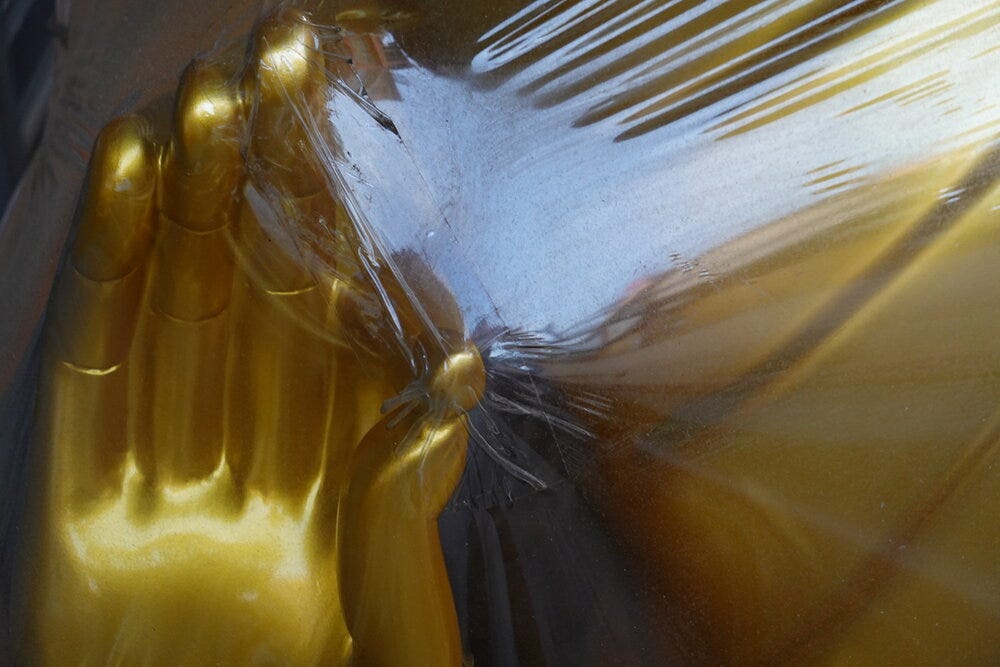
Lastly, what experience can people expect from joining one of your photography workshops?
Usually, when people contact me, I ask a few questions about their own experience with their photography as this helps me gauge how I will offer the workshop experience to them.
If it's a confident photographer doing a workshop, then there is minimal instruction and more time exploring the less trodden paths. For the beginner or intermediate photographer, I like to share my own approaches and contextualize these approaches with the environment and the people living here.
I engage them straight away with the culture and local story, whilst simultaneously combining practical photography techniques. It's a very authentic and engaging experience and I am grateful that I can share the culmination of my own knowledge and experience with others.
Learn more about Nick McGrath’s photography on his website here: nmcphoto.com
Discover his BKK Photography Workshops here: bangkokphotographyworkshop.com
He can also be contacted via npmcgrath at gmail dot com or phone +66 90 490 3119




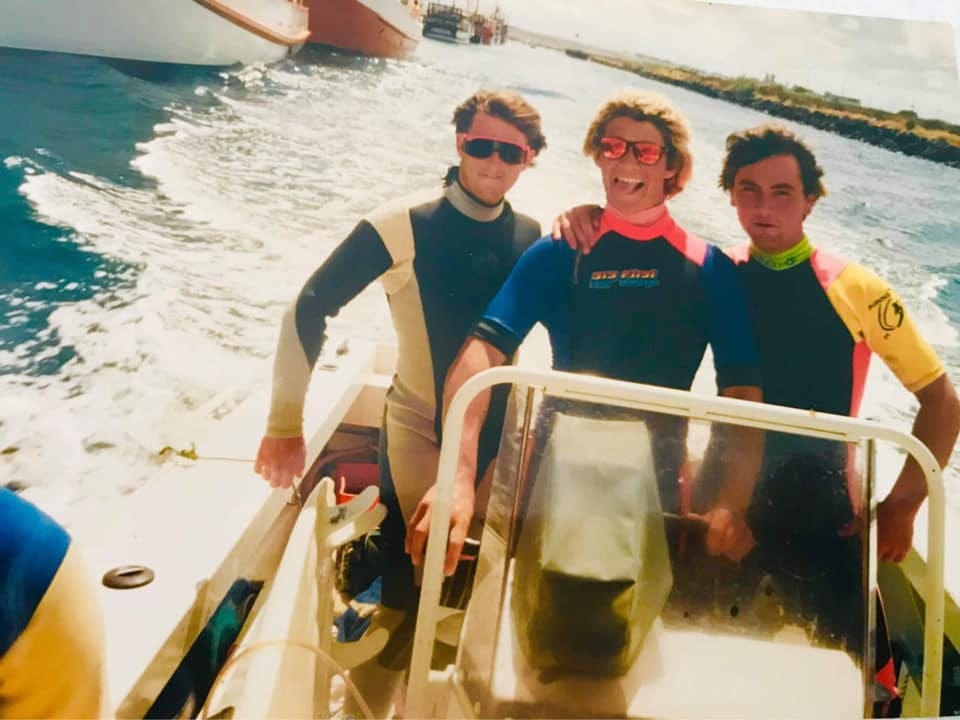
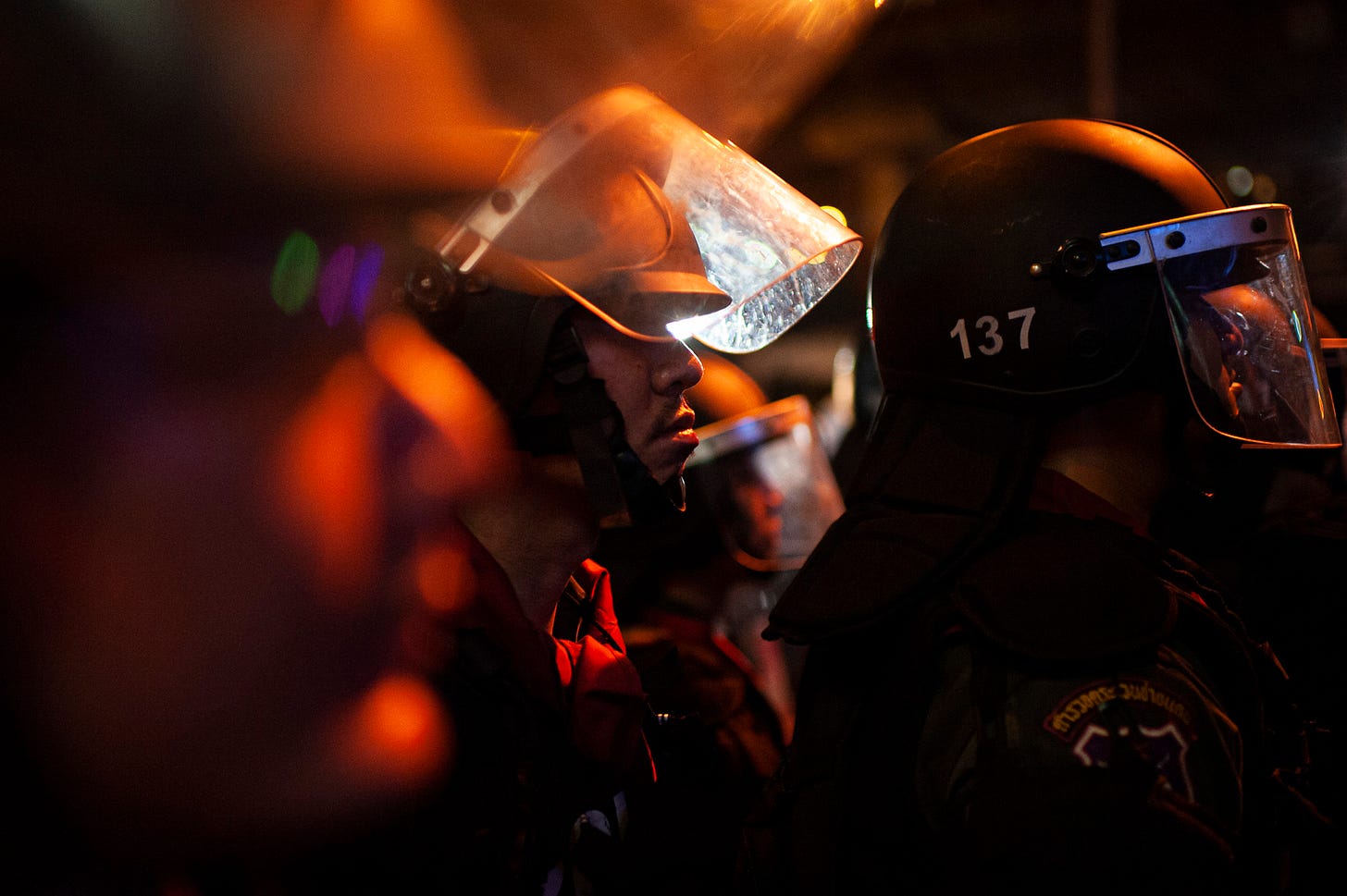
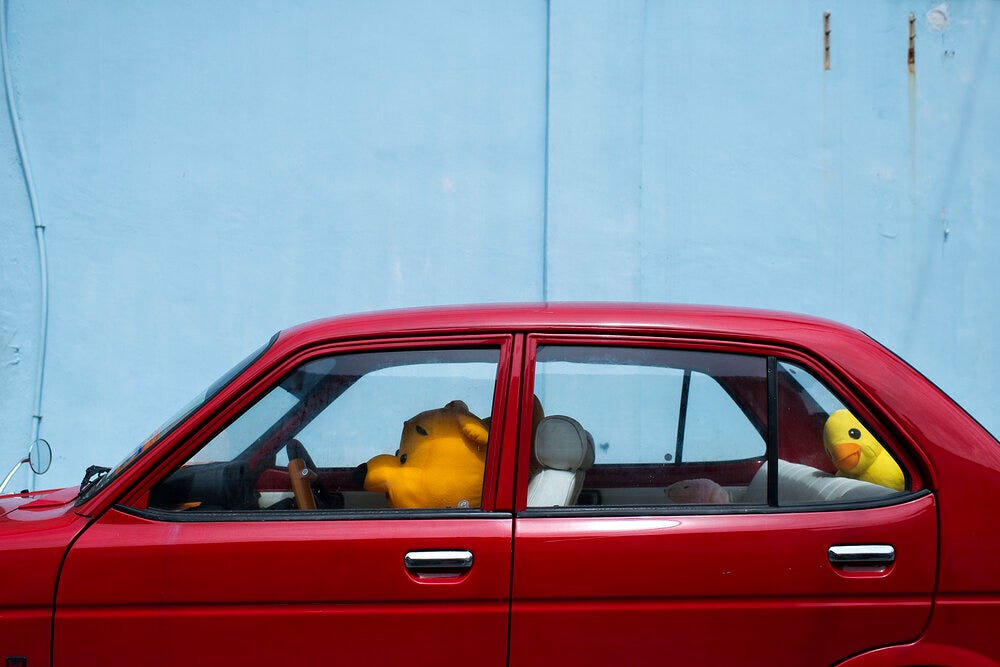
Great interview - wonderful photos too !
So much to appreciate in this interview.